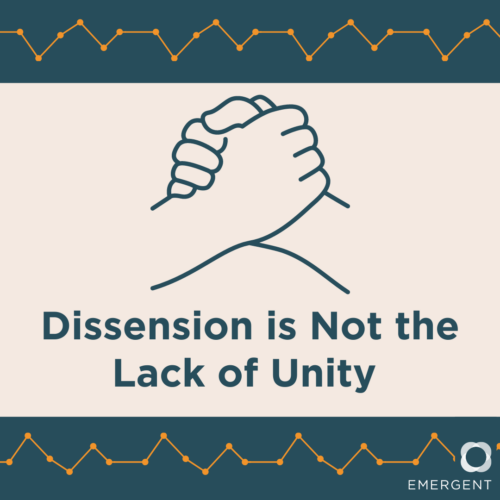So many of us fear dissension. We want harmony. We want everything to go smoothly, like a well-oiled machine, one of the business world’s favorite analogies. Though we know in our minds that conflict can be very productive and useful, our emotions tend to take precedence. Many people fear conflict, and expend a great deal of energy resisting or avoiding it.
In my coaching work, I intentionally steer clear of a common cliche: “getting comfortable with conflict.“ The idea that conflict should feel comfortable is misleading and limiting. I don’t think mastering conflict and working in dissension is a function of comfort. Rather, using creative dissension is often exhausting, difficult and uncomfortable.
I’m a woodworker, and have a little bit of an obsession with tools. I’m incredibly lucky to have a wife who understands this about me and allows me to buy tools as I see fit. Each and every tool has a unique ergonomic feel; some tools are more comfortable than others. And some tools you just have get used to by using them more often. Tool use requires practice and practice makes progress, not perfection. The key is having a safe workspace to practice in.
Remember: dissension does not equal the lack of unity. Dissension is a tool that can, in fact, create stronger unity. A group of people who share high levels of respect, trust and psychological safety with one another is united. There should be no topic, no agenda item, no strategic goal that would create enough dissension to challenge unity. Conflict is rarely the undoing of teams; it merely brings to the surface an underlying issue. Something else must be at play!
The second law in Robert Green‘s book, The Laws of Human Nature, is the Law of Cultivating Self-Love. Surprisingly, Green admits this is a form of narcissism. We tend to imagine a narcissist as someone who damages relationships through egocentricity and manipulation. By prioritizing their agenda above everything else, they make unity an impossibility.
But Green reminds us that there is a spectrum of self-serving behaviors. To some degree, we are all narcissistic. We have to be if we’re human! Green argues that humans require self-love to be healthy. People that we call narcissistic are those whose need for self-love is so insatiable that they cannot or will not consider the needs of others. When a person like this is working with a team, or even leading a team, they can be expected to do great damage to relationships and organizations. Under such a leader, conflict gets personal. Egos take over. Team members resort to their most self-protective impulses because there is no underlying unity to cushion the blow. Dissension creates a level of fear strong enough to drive them away from each other, whether they know it or not.
Self-love, however, can be incredibly productive–when it functions in concert with shared values. When a team is committed to achieving shared goals, when it has agreed to its purpose and guiding principles, it has the strength to sustain conflict. The self-love remains, but it is tempered by mutual respect and common aims. This “humble narcissism” allows team members to stay true to themselves without abandoning the mission. It takes courage and practice to create this alignment, but once it has been achieved, conflicts no longer threaten to break up the band.
Practice this by realigning your values with your team on a regular basis. Maintain your self-love at healthy levels and remind each other of the essential reasons you work together. They are likely quite simple and powerful–things like Dignity, Justice, Love and Respect will likely make your lists. Let yours be a full list of uniting values and nothing will come between you.
If you’re interested in building unity in your teams and using conflict to productive ends, send me an email at bill@getemergent.com.

Comments (0)